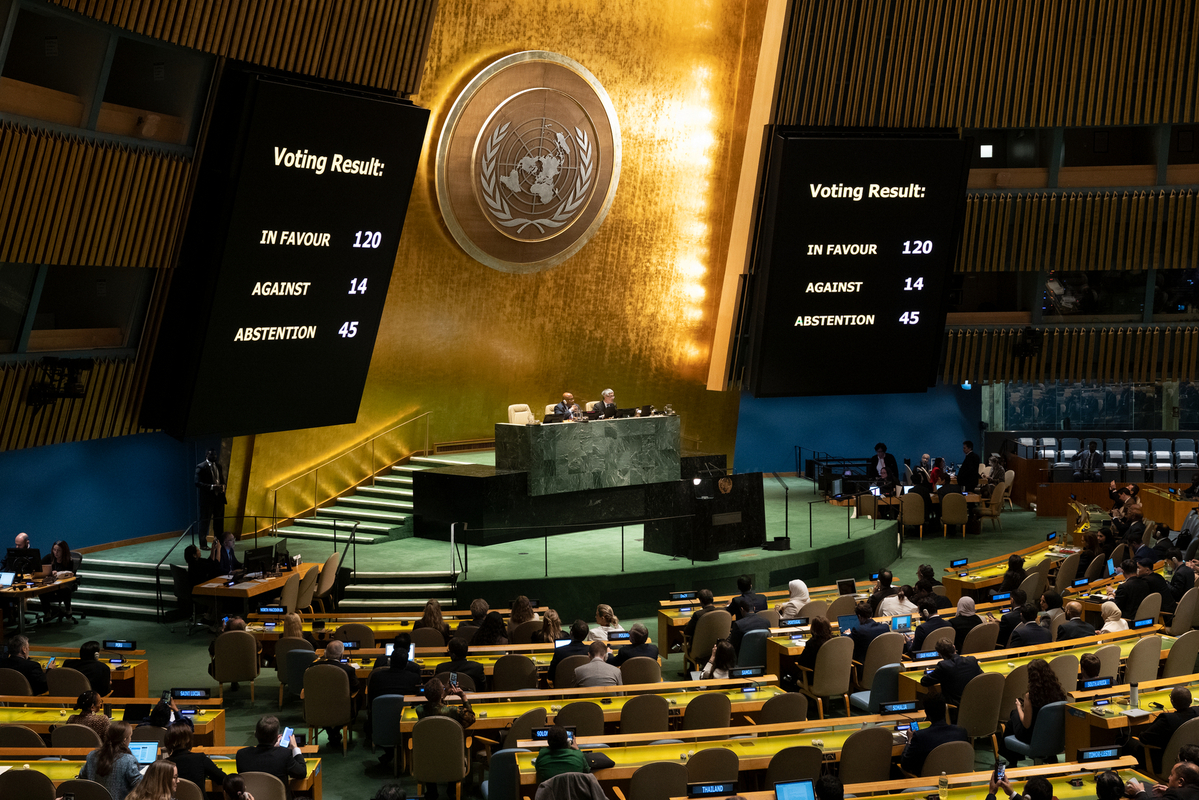On September 12, 2025, the U.N. General Assembly adopted a nonbinding resolution known as the New York Declaration, overwhelmingly supporting a two-state solution to the Israel-Palestine conflict. The vote tally was 142 in favor, 10 opposed, and 12 abstentions.
The resolution, co-sponsored by France and Saudi Arabia, maps out “tangible, time-bound, and irreversible steps” toward achieving a sovereign and independent Palestinian state while also addressing serious concerns about the ongoing conflict in Gaza. It condemns the October 7, 2023, Hamas attacks on Israeli civilians, and much more unusually, also explicitly criticizes Israeli military operations in Gaza for civilian harm, damage to infrastructure, and for elements such as sieges and restrictions on aid that are contributing to a humanitarian crisis.
Not everyone supports the resolution. Israel and the United States were among those opposing it, calling it unhelpful or counterproductive. Israel’s Prime Minister Benjamin Netanyahu reiterated that there will be no Palestinian state under his watch. Several other countries either abstained or criticized parts of the resolution for failing to address security concerns or leaving ambiguity around “who does what and when.”
The timing of the vote is significant. With the war in Gaza entering its second year, and mounting global concern over civilian casualties and humanitarian access, this resolution represents growing international impatience with the status quo. It also comes ahead of a high-level U.N. meeting in late September, where multiple nations are expected to formalize recognition of a Palestinian state.
For many analysts, the real test will be whether this declaration leads to concrete diplomatic and political movements — whether more countries will recognize Palestinian statehood, whether there will be pressure toward demilitarization or governance changes in Gaza, and whether peace talks will be reinvigorated. Supporters say the New York Declaration is a foundation, but it won’t be enough unless backed by sustained international action. Critics warn that without buy-in from all sides (especially Israel and allied nations like the U.S.), it risks being symbolic rather than transformational.

